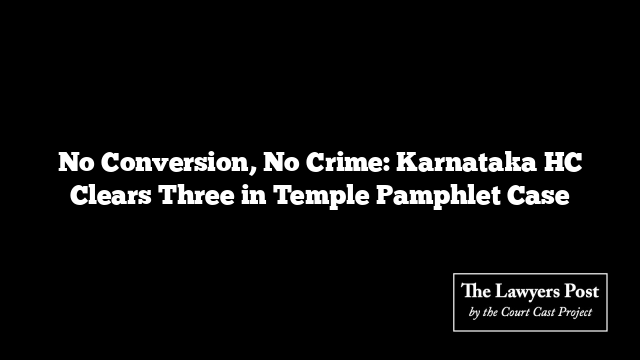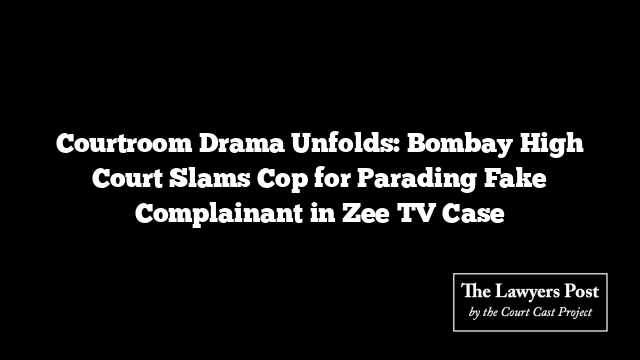The Karnataka High Court has tossed out a criminal case against three men who were booked under the state’s anti-conversion law for distributing Islamic pamphlets near a temple—ruling that merely sharing one’s faith doesn’t amount to a criminal act.
Justice Venkatesh Naik T, delivering the verdict, made it clear that the case lacked the core ingredient necessary for invoking Section 3 of the Karnataka Protection of Right to Freedom of Religion Act, 2022—namely, conversion or even an attempt at conversion. “Even if the FIR is taken at face value,” the judge noted, “there’s simply no offence made out under the law.”
In fact, the law requires that a complaint must come from the person who was allegedly converted or from their family. In this case, however, the complaint was filed by a third party—someone who merely overheard the conversation.
The men—Mustafa, Alisab, and Suleman—were allegedly distributing pamphlets near the Ramatheerth Temple in Jamkhandi back in May 2025. According to the FIR, they were preaching about the supremacy of Islam and making provocative statements about Hinduism. But no one claimed they were being coerced, converted, or misled—just that words were spoken and leaflets handed out.
The High Court wasn’t impressed with the prosecution’s argument. The petitioners’ counsel contended that propagating religious beliefs, even passionately, is not the same as forcing someone to convert. The court agreed.
Declaring the entire legal process—from the FIR to the charge sheet—a misfire, the court quashed the case in its entirety.
With that, what began as a controversial pamphlet distribution near a temple ends not in punishment, but in a firm reminder that religious freedom includes the right to speak, share, and even disagree—so long as it stops short of coercion.





